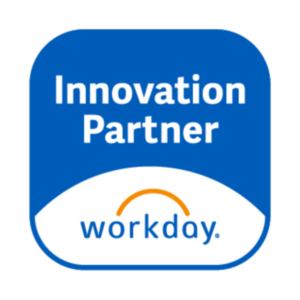Even before the COVID-19 pandemic took over our day-to-day lives, remote work was steadily on the rise. In the US, the remote workforce has grown by 91% over the past decade and for organizations with large amounts of knowledge workers, remote working is becoming something of a necessity for employers to adopt. An International Workplace Group survey found as many as 80% of US office workers would turn down a job that didn’t offer flexible working.
But now the idea of a digital revolution is no longer something to debate; we’re all facing it together in real-time — suddenly, everyone is a remote worker.
While many of the benefits of remote work are apparent, it takes time and a conscious effort to implement a successful work from home strategy.
The isolation issue
A primary issue with remote working is isolation and its effects on an individual’s mental health. Isolation affects performance, relationships with colleagues, and the company as a whole. A wellbeing analysis by HR Review found, “UK businesses lose £100m every year due to work-related stress, depression, and anxiety.” Especially during a time of social distancing in our communities, isolation can quickly have a negative impact on workers, their performance, and how they show up for one another. Isolation can exacerbate feelings being “out of sight, out of mind” and increase miscommunications as email and Slack messages are often easily misinterpreted without any visual cues.
Increased feelings of isolation can also cause trust within the organization to deteriorate quickly. When trust is eroded, companies miss out on the opportunity to understand the employee experience and further blind themselves to hidden misconduct.
One study found that 52% of people who worked from home at least part-time were more likely to feel left out and mistreated and struggled to deal with conflicts between themselves and their coworkers. Feelings of not being able to Speak Up are exacerbated when working in isolation.
At Vault Platform, we know trust directly affects employees’ feelings of safety to Speak Up and the likelihood they will report issues they experience or witness. With the additional pressure from the Coronavirus crisis it’s more important than ever to emphasize your Speak Up culture by highlighting your policies and procedures to ensure your team feels supported and makes it clear they can come forward, even remotely.
Misconduct is not going to be reported because HR is not accessible
Whether an employee is directly experiencing harassment or discrimination, witnessing an insensitive Slack thread, or picking up on inconsistencies in your company’s financials, employees are unlikely to report incidents unless trust and accountability exist within the workplace. HR has the opportunity to lower the barriers to reporting by building rapport with their workers remotely with proactive and regular communication to validate their systems of support.
Sara Dittrich, an HR Manager at US Sheraton Hotels and Resorts, has placed an explicit emphasis on communication across her team during this time of separation and has implemented regular touchpoints throughout the week with their new remote workforce. Dittrich says, “Misconduct is, more than likely, not going to be reported because HR is not accessible.” Her team counteracts this by ensuring policies, including their non-retaliation policy, are evident even when employees are at a distance. By creatively sharing their procedures for reporting through weekly newsletters and one-on-one check-ins, she’s confident that they can retain the open and trusting environment they’ve built in person.
Leaders can build trust by communicating transparently about changes occurring in the company, creating opportunities for connection across teams, recreating conversation “around the water cooler,” or digitalizing your open-door policy. Consistently aligning on your shared purpose as an organization can really contribute to strengthening bonds within your workforce. Agile HR leaders who prove they can navigate the changing landscape of a global pandemic and solidify their dedication to supporting their employees throughout will come through this period of remote work with an empowered, resilient workforce and an actualized open door policy.
How will you combat the effects of isolation on your workplace reporting?
Learn more in Vault Magazine: The Isolation Issue and get more insight on this cultural shift




